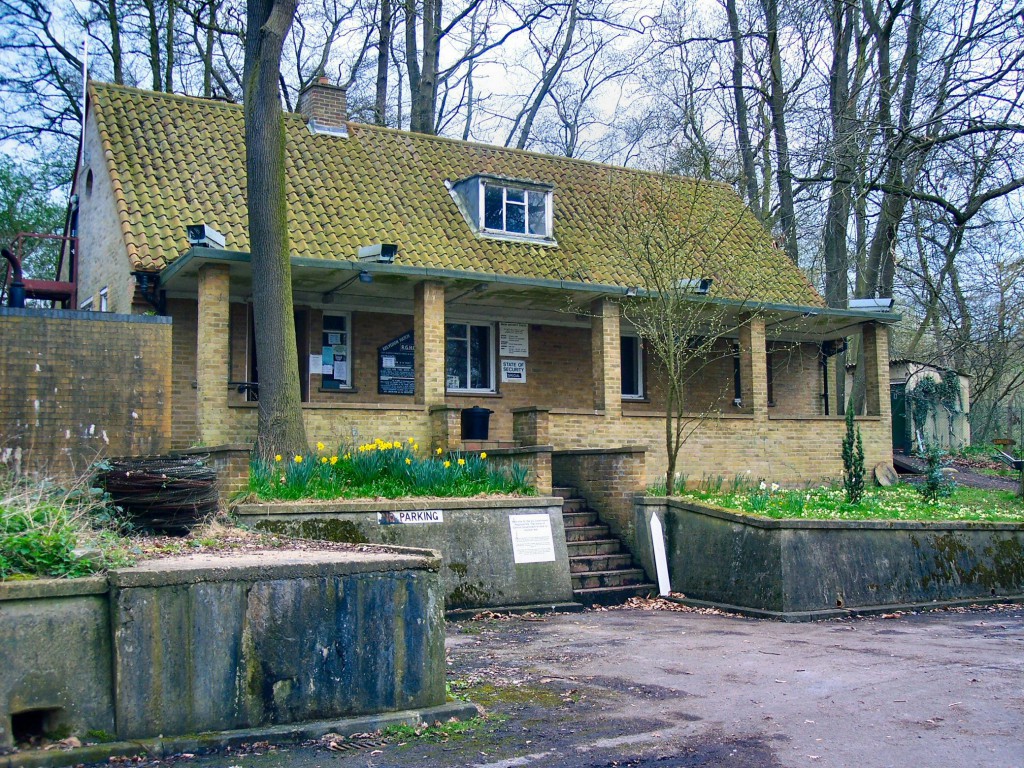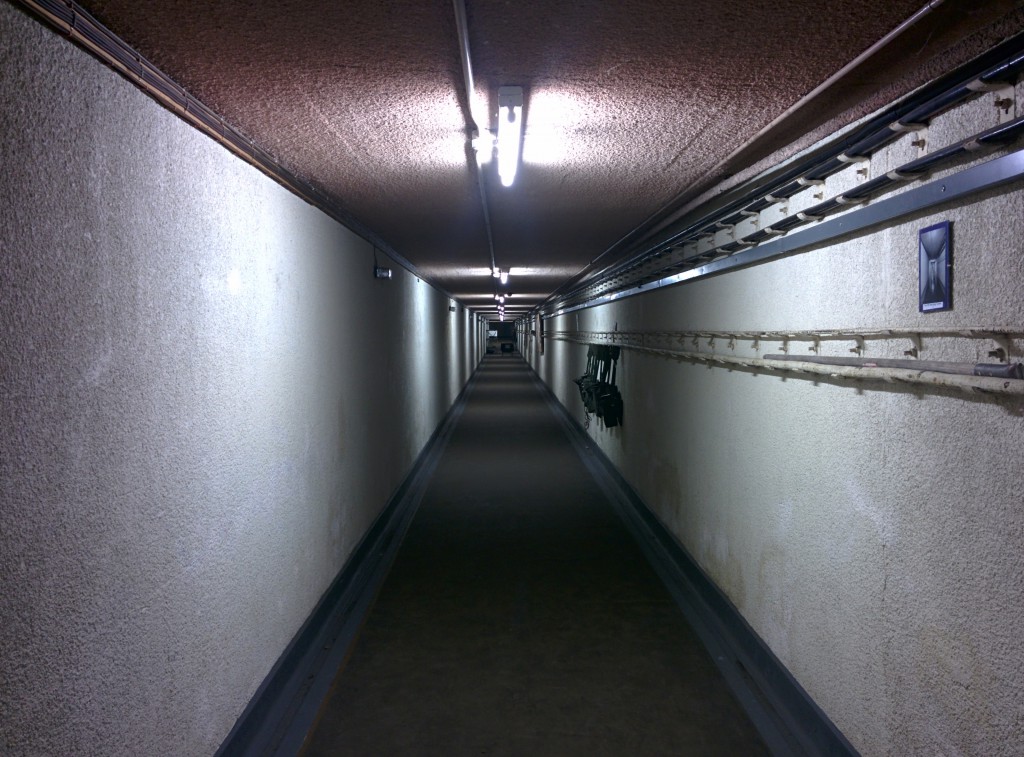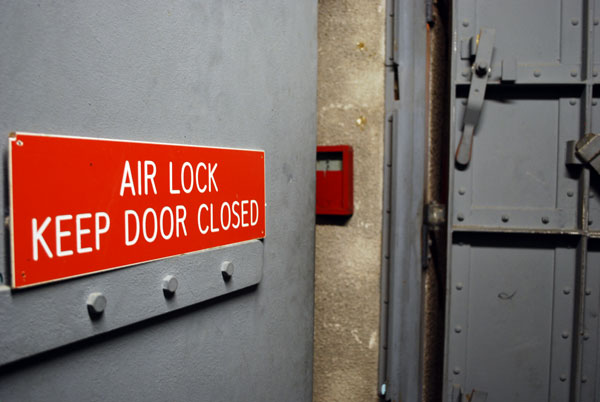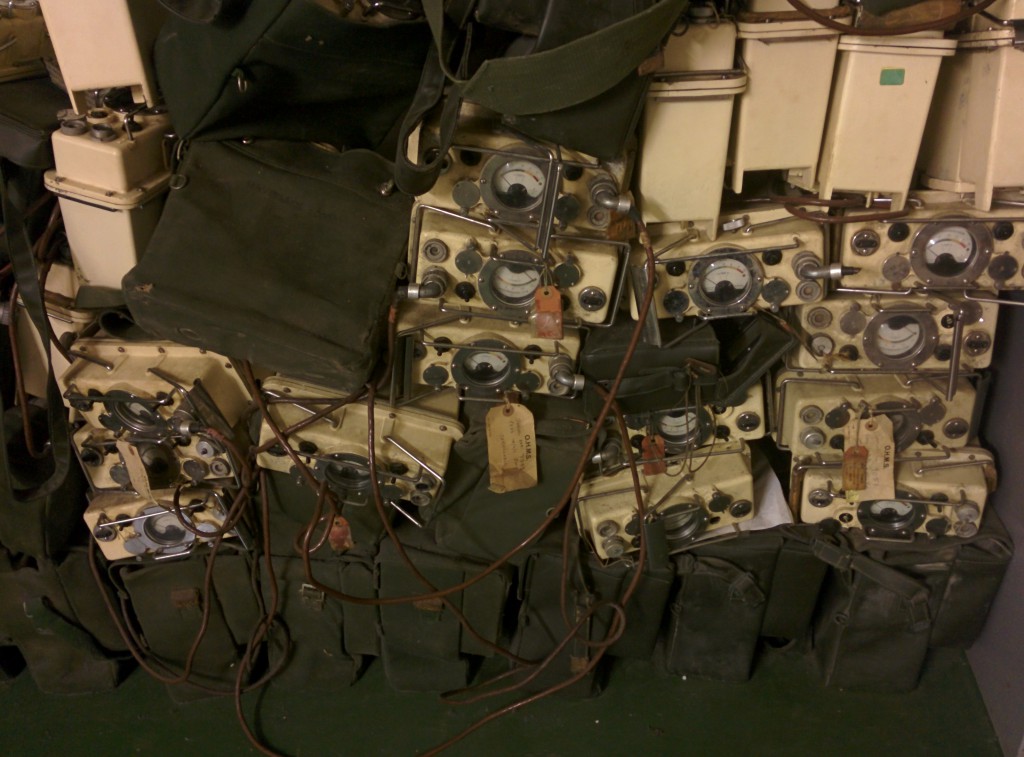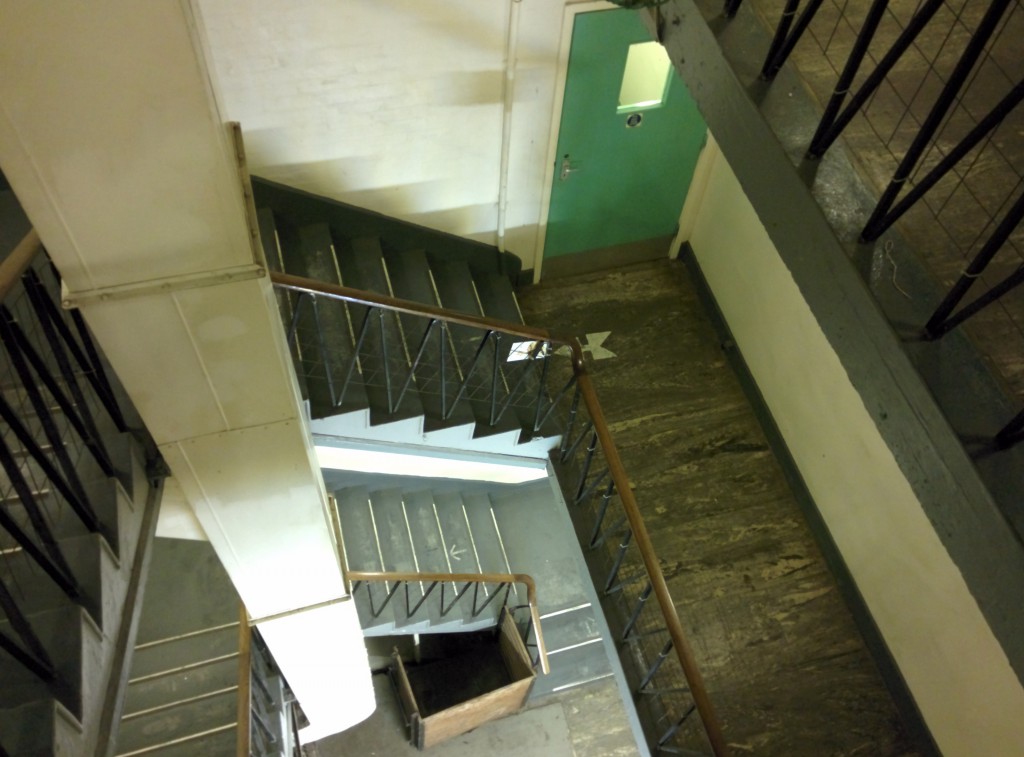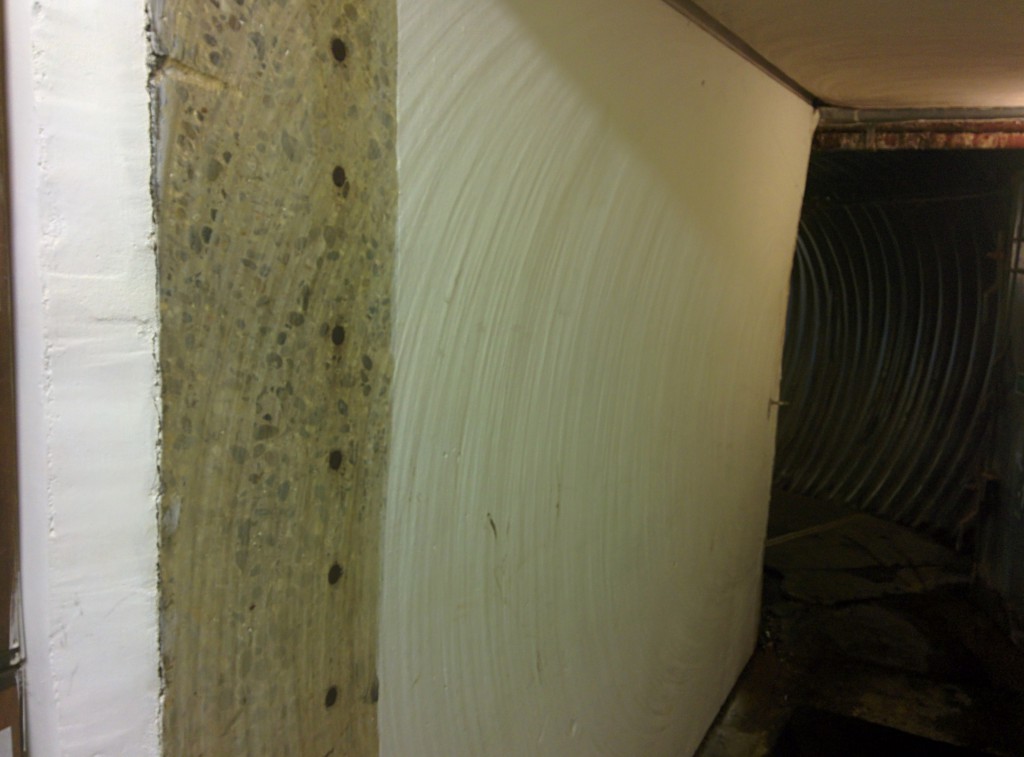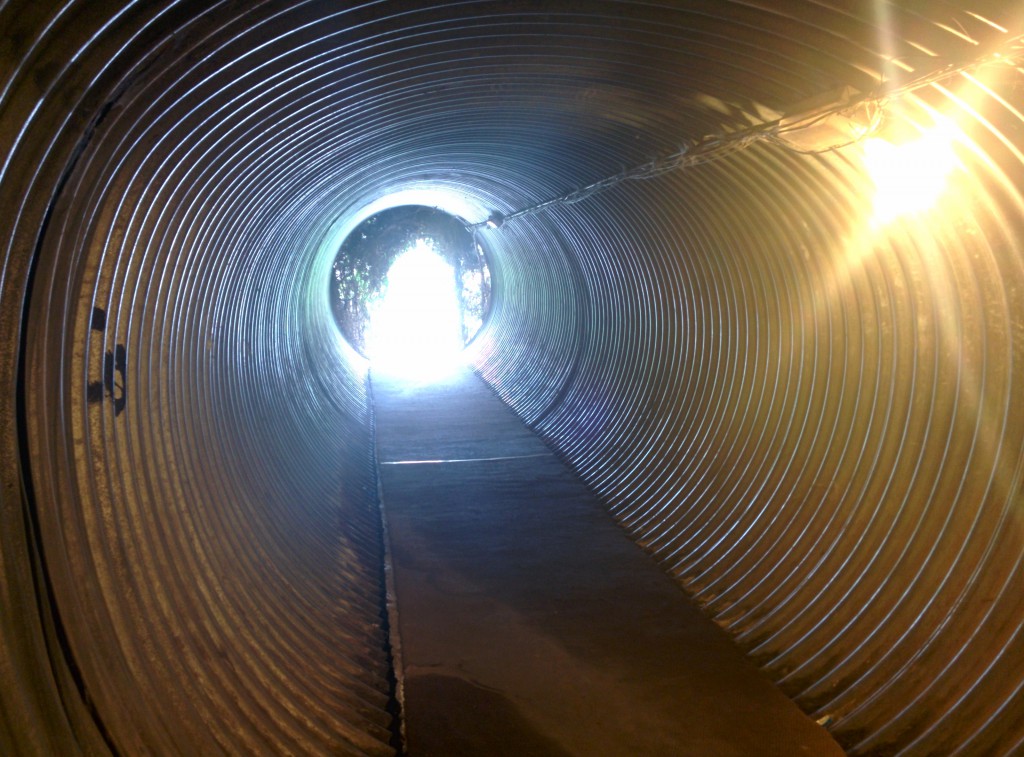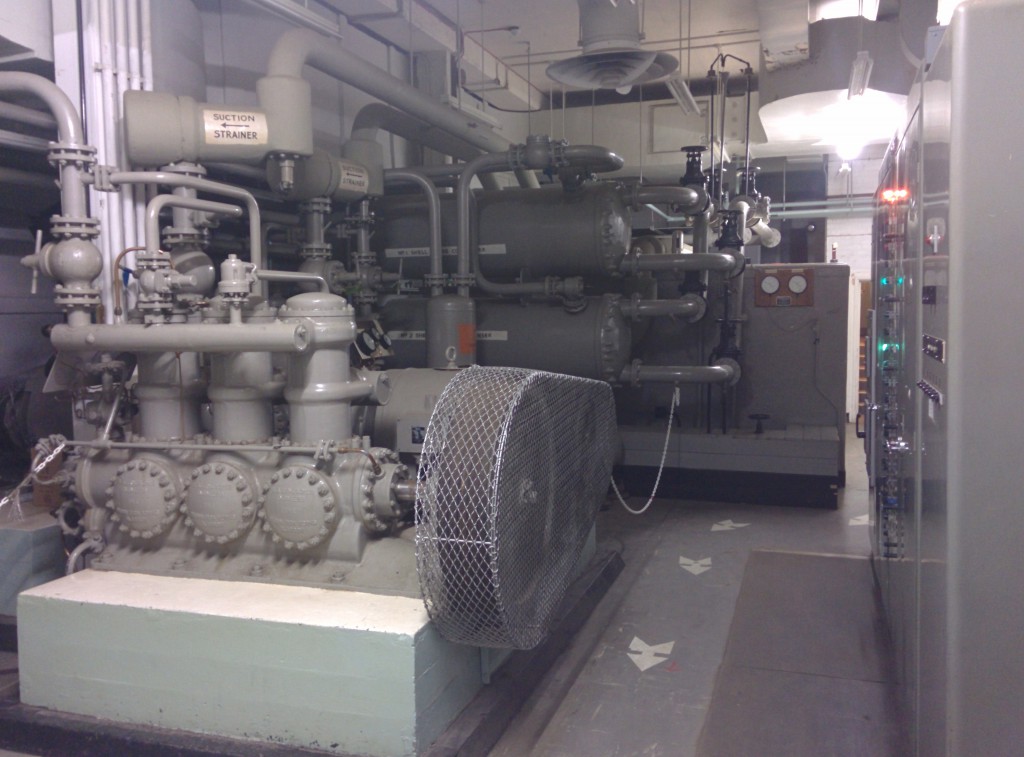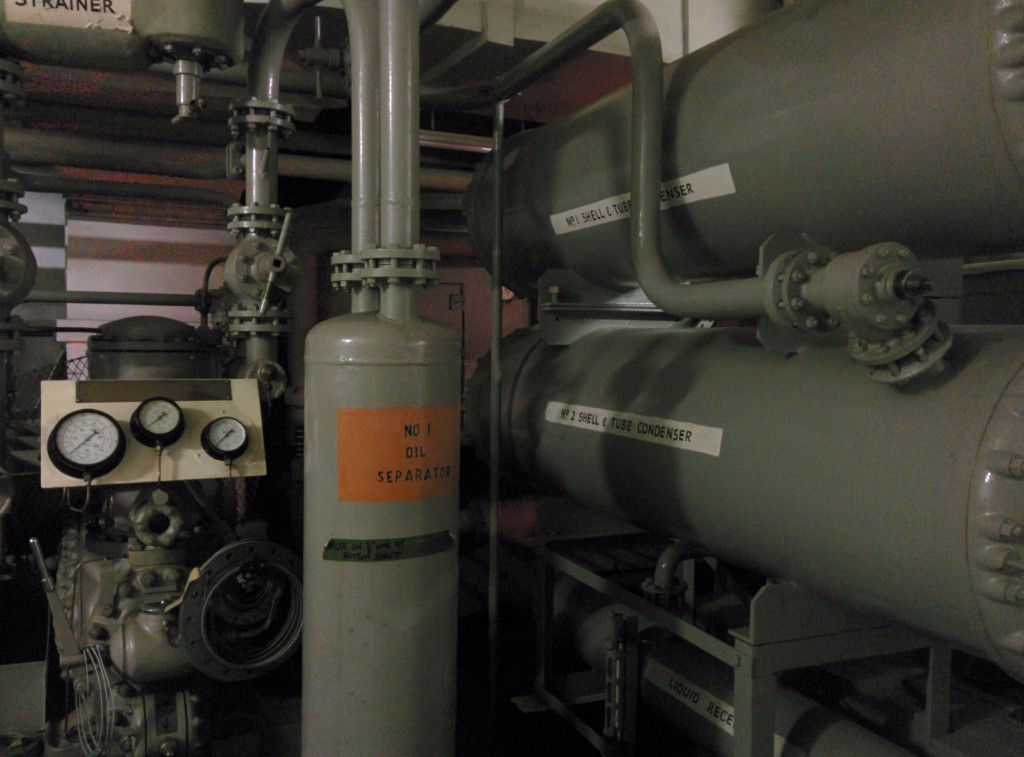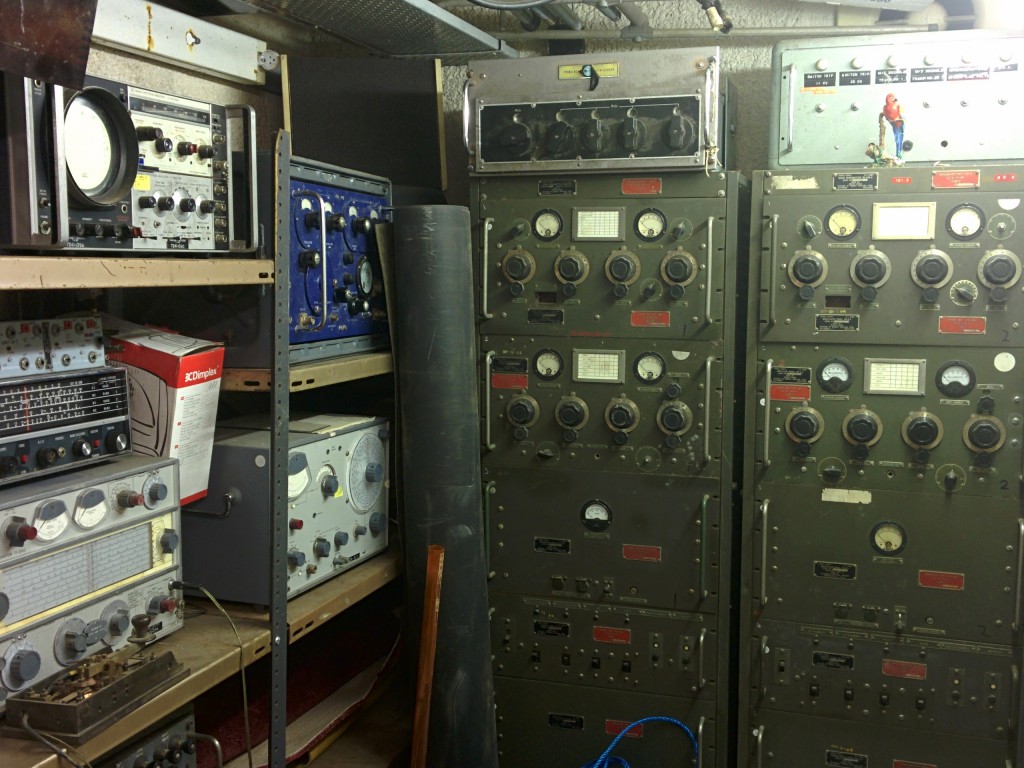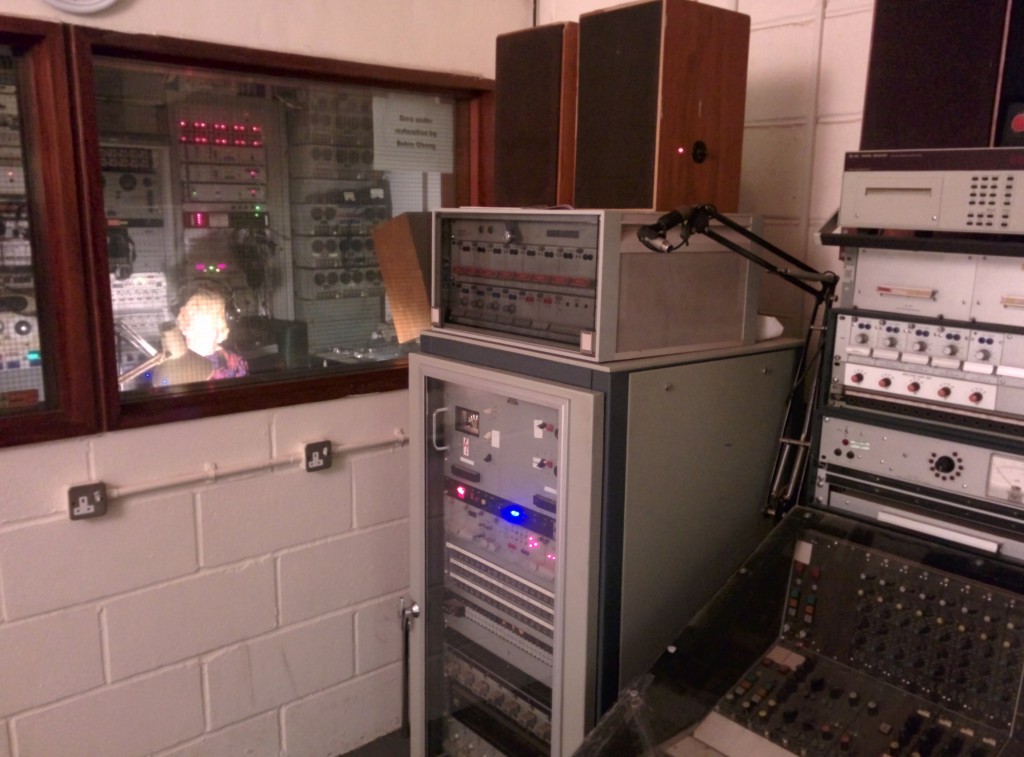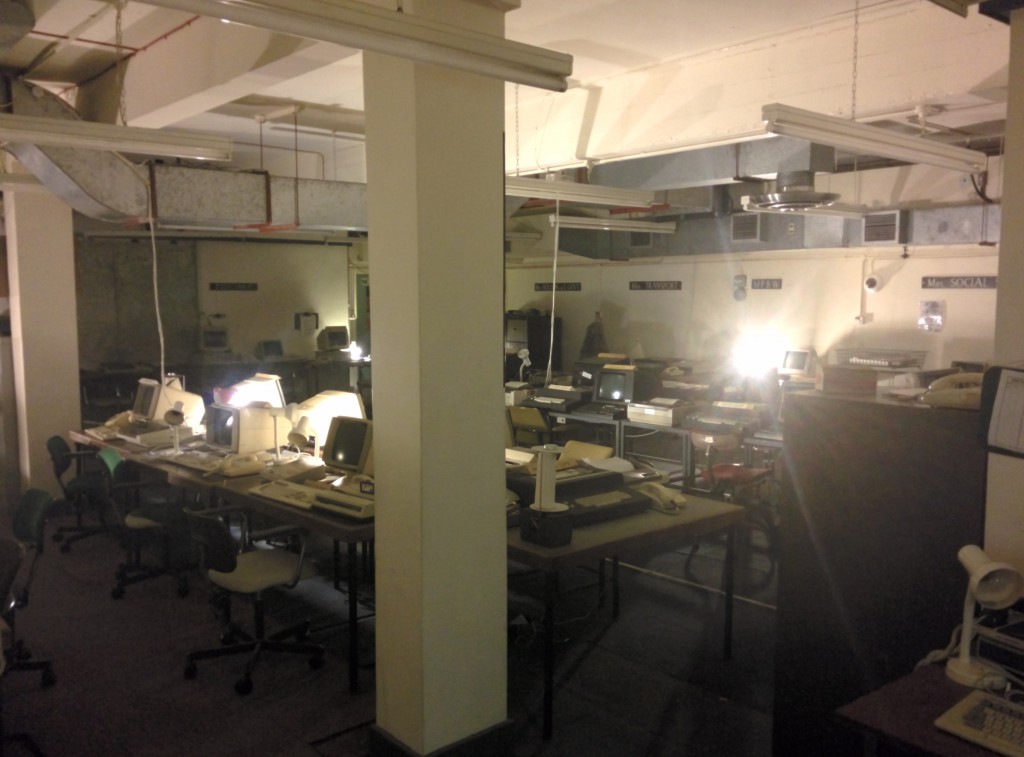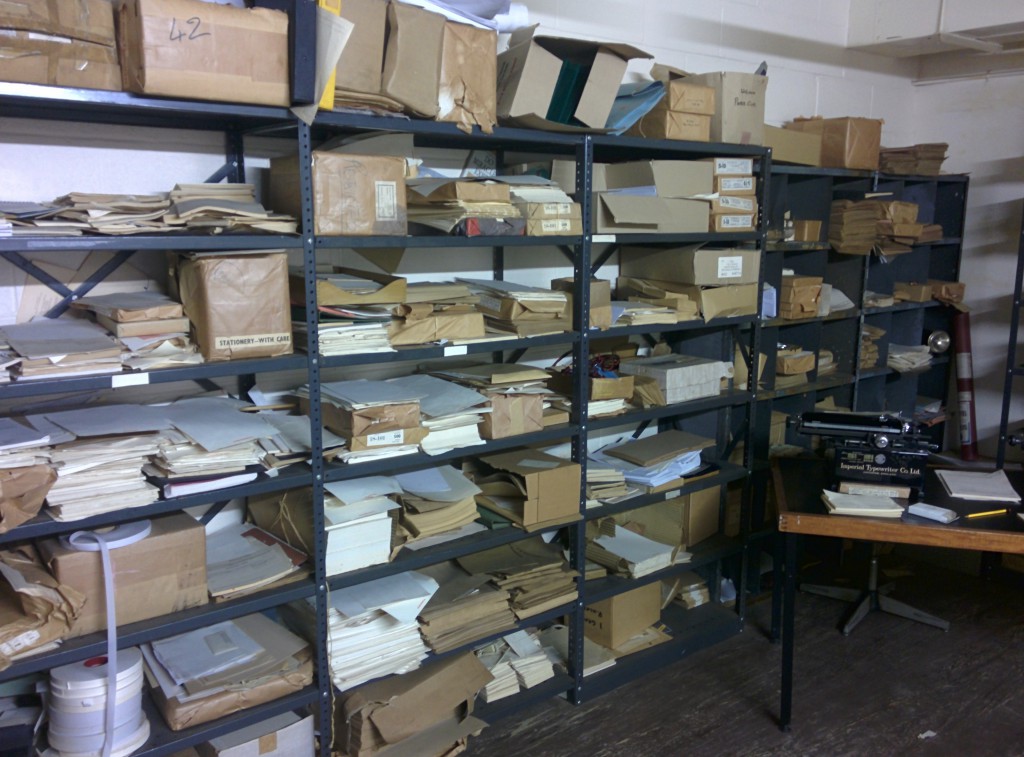This page houses a few pictures from inside the bunker to give you an idea of how big the place is. You may also be interested in the video tour of the bunker and more specifically our shack.
Inside the entrance bungalow, there is a decontamination room where clothes are changed to prevent any direct nuclear contamination inside the bunker.
The bungalow has a long tunnel leading deep underground towards the main blast doors of the bunker. The tunnel leads slightly downwards, allowing heat from the original (valve) radio equipment to rise up and away, since the equipment was outside the main blast-doors. The tunnel was the only way into the bunker, and would have also been used to shoot unauthorised persons trying to enter.
At the bottom of the tunnel is the original radio equipment rooms, where our shack is located. Immediately next to the radio rooms it a set of blast doors.
Once you pass through the blast doors, there is a vast maze of corridors and rooms, which you will need to visit the bunker in order to explore.
Stacks of Geiger counters inside the bunker, used to measure radiation.
Looking across the main stairwell down towards the depths of the bunker
When the bunker was made into a museum in the mid-to-late 1990s, there was a need to create an alternate fire exit for the bunker. This meant cutting through the bunker’s exterior wall to create an opening. The image below shows a cross section of the wall, with tungsten reinforcing bars.
With so many people inside the bunker, provisioned for around 600, the heat was often unbearable, despite the efforts of the air-conditioning system, located on the lowest floor.
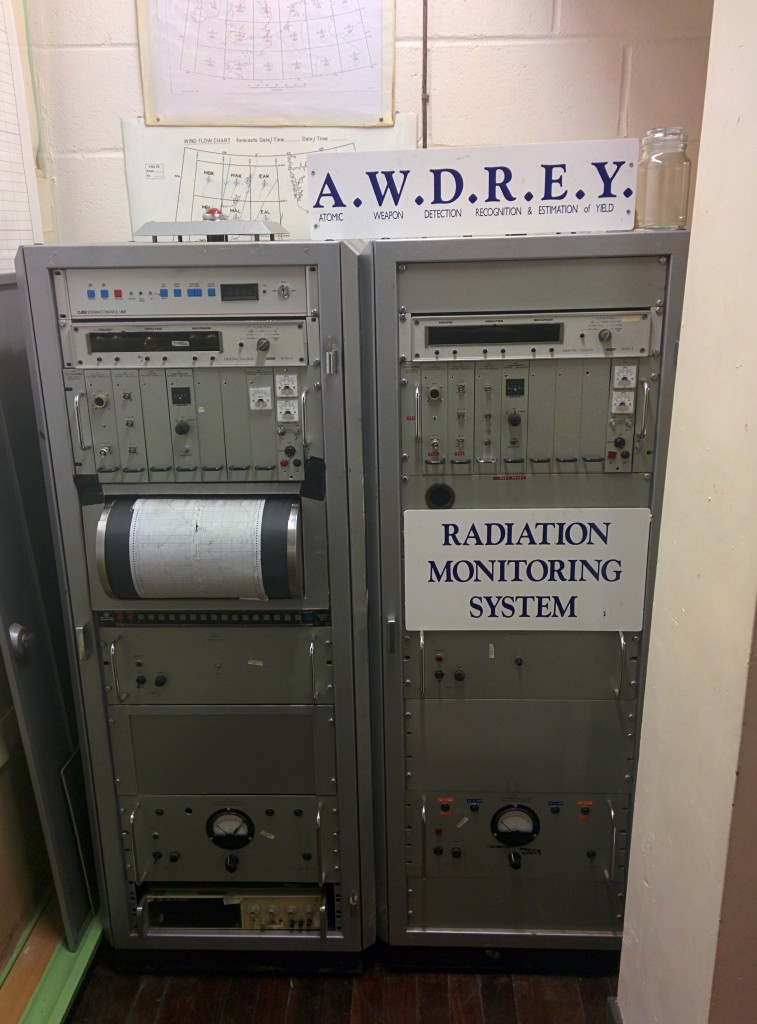
AWDREY Radiation Monitoring System used to detect nuclear explosions and estimate size in megatons
The BBC Studio is playing an eerie clip of a recording:
Amid the decimation after a strike, not everybody will be exterminated; there will be some survivors. It may be that only transistor sets with batteries still work; that only some distant transmitter will be the only other human contact.
